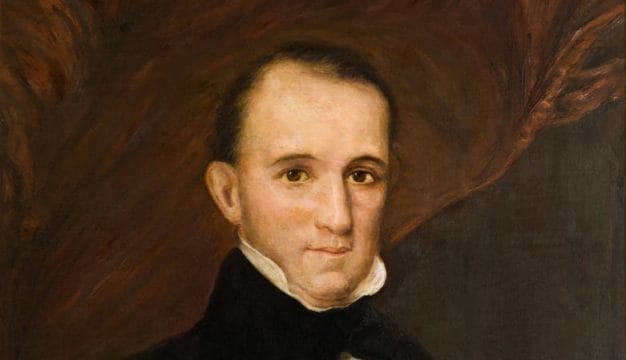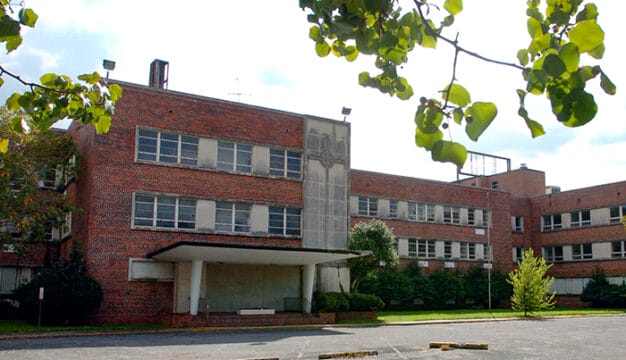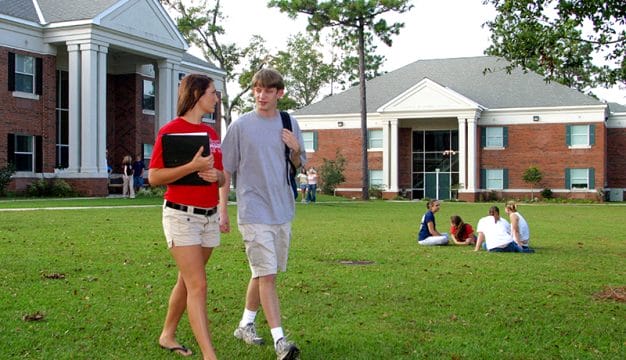Reid State Technical College
Reid State Technical College, located in Evergreen, Conecuh County, was created by the Alabama State Legislature through a state statute on May 3, 1963. The college itself was established in 1966. Reid currently offers degrees in 13 instructional programs and enrolls approximately 750 students.
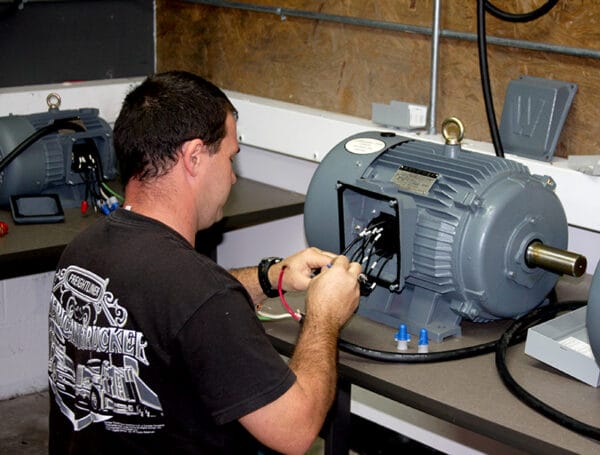 Industrial Maintenance
Local support for the establishment of Reid State was provided by the city of Evergreen with the donation of 26 acres of land in north Evergreen at the intersection of Interstate 65 and state Highway 83, which became the institution’s main campus. The college opened in October 1966 with 60 students and graduated its first class on November 3, 1967. Tuition was $15 per month. At the time of its opening, the college had 12 instructors and approximately 60 students. It was dedicated on April 25, 1967, by Gov. Lurleen B. Wallace. The first president of the college was Wiley Salter, whose served from 1965 to 1991.
Industrial Maintenance
Local support for the establishment of Reid State was provided by the city of Evergreen with the donation of 26 acres of land in north Evergreen at the intersection of Interstate 65 and state Highway 83, which became the institution’s main campus. The college opened in October 1966 with 60 students and graduated its first class on November 3, 1967. Tuition was $15 per month. At the time of its opening, the college had 12 instructors and approximately 60 students. It was dedicated on April 25, 1967, by Gov. Lurleen B. Wallace. The first president of the college was Wiley Salter, whose served from 1965 to 1991.
Reid began with classes in automotive mechanics, practical nursing, cosmetology, business administration, and mechanical drafting, among others, in four original buildings. The college administration consisted of a director and an assistant director/business manager. In 1974, the school expanded with the addition of a building with facilities for classes in masonry, carpentry, and cabinetmaking. In 1981, Reid established a practical nursing program at an off-site location in the city of Atmore. The Wiley Salter Auditorium and Administration Building was completed in 1986, and in 1990, major renovations were initiated to create a learning center and laboratories for specialized training in computer software applications, programmable logic controllers, and instrumentation systems. Ulysses McBride became the institution’s second president in 1992. In 1993 and 1994, the practical nursing facility was renovated so that it more closely resembled clinical facilities.
Douglas M. Littles began serving as president in October 2000. The Workforce Development Center, managed and operated by Reid State, was opened in 2004 as Reid State Technical College, and the Conecuh County Board of Education entered into a lease agreement with the college to hold classes at the former Career Technical Center, which had been used by students at Hillcrest High School. Reid State oversees the Workforce Center and offers college level, adult education, and workforce development courses to dual enrollment high school students and adults.
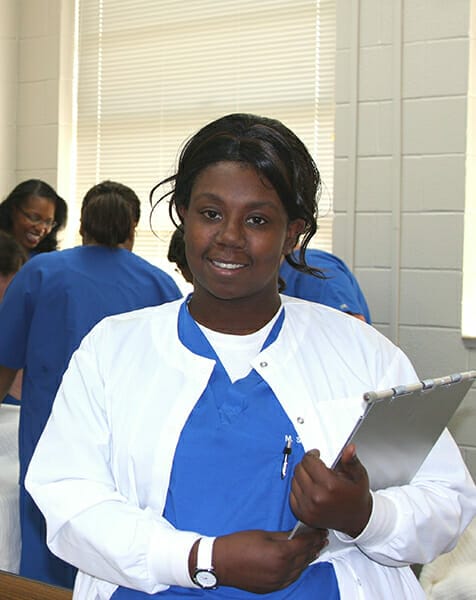 Health Careers and Human Services Division
The campus expanded again in 2005 with the addition of the Stanley Busby CDL Classroom and Technology Center, a state-of-the-art facility where students are prepared for employment as Class “A” commercial truck drivers. This building houses a driving simulator that allows students to experience shifting gears and transmission changes before getting behind the wheel of a commercial truck. The Edith A.Gray Library and Technology center also was dedicated in 2005. In 2009, the classes leading to the Registered Nurse degree were moved to the Atmore campus of Jefferson Davis Community College, whereas Reid State continues to offer other nursing classes.
Health Careers and Human Services Division
The campus expanded again in 2005 with the addition of the Stanley Busby CDL Classroom and Technology Center, a state-of-the-art facility where students are prepared for employment as Class “A” commercial truck drivers. This building houses a driving simulator that allows students to experience shifting gears and transmission changes before getting behind the wheel of a commercial truck. The Edith A.Gray Library and Technology center also was dedicated in 2005. In 2009, the classes leading to the Registered Nurse degree were moved to the Atmore campus of Jefferson Davis Community College, whereas Reid State continues to offer other nursing classes.
Reid State offers associate degrees, diplomas, and certificates in a variety of majors in diverse fields, including computer applications and repair, construction, health care, and cosmetology. The college also offers specialty courses in machine tool technology and software applications for jobs related to business and industry, as well as continuing education classes for local residents in topics ranging from Conversational Spanish to Automotive Upholstery to Cake Decorating. The Dual Enrollment Program offers local high school students opportunities to gain experience in the working world before graduation, and the Adult Education Program provides residents with GED courses and training in basic office skills. More than 300 students currently attend adult education classes.
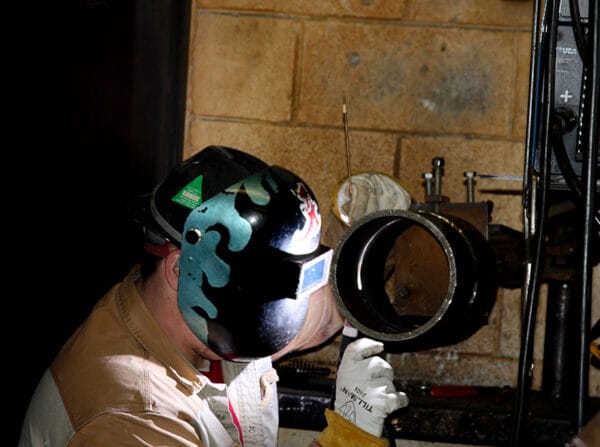 Welding Technology
The current college administration consists of a president, dean, business manager, and three associate deans responsible for instruction, technical programs, and institutional effectiveness. Coretta Boykin, who has served the institution in many capacities and most recently was Dean of Instruction and Workforce Development, became president in April 2021. Reid has grown to approximately 60 employees from the original 12 employees of 1967. Current tuition at Reid is $91 per semester hour. The number of full- and part-time instructors at Reid State currently stands at approximately 33, and the annual budget is $9.5 million. It serves students from Butler, Conecuh, Escambia, Monroe, and parts of Covington and Wilcox counties. Florida residents within 50 miles of a Reid State campus may attend the college at in-state tuition rates.
Welding Technology
The current college administration consists of a president, dean, business manager, and three associate deans responsible for instruction, technical programs, and institutional effectiveness. Coretta Boykin, who has served the institution in many capacities and most recently was Dean of Instruction and Workforce Development, became president in April 2021. Reid has grown to approximately 60 employees from the original 12 employees of 1967. Current tuition at Reid is $91 per semester hour. The number of full- and part-time instructors at Reid State currently stands at approximately 33, and the annual budget is $9.5 million. It serves students from Butler, Conecuh, Escambia, Monroe, and parts of Covington and Wilcox counties. Florida residents within 50 miles of a Reid State campus may attend the college at in-state tuition rates.

